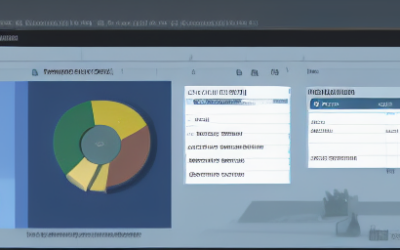The Internet of Assets (IoA) is a term that describes the physical world being connected to the digital world. It enables companies to track and manage physical assets, such as vehicles, equipment, and inventory, and to capture data from them in real-time. This data can then be used to improve asset performance, optimize business operations, and create new revenue streams.
Tech Blog
Tech Insights, Information, and InspirationTop Programming Languages
In today’s tech-driven world, it is essential to have knowledge of the top programming languages. Programming languages are used to create software and apps, and to communicate with computers. The top programming languages today are Python, JavaScript, Java, C/C++, C#, PHP, and SQL.
Enterprise App Development
Enterprise app development is the process of creating and developing applications specifically designed to meet the needs of businesses. These apps are designed to help businesses manage their operations, increase efficiency, and improve customer engagement.
QMS Software
QMS software stands for Quality Management System software. It is a software system that helps organizations manage their quality processes and procedures. Quality management systems are designed to help organizations meet customer requirements and improve operational efficiency.
DevOps vs DevSecOps
DevOps and DevSecOps are two related concepts in the field of software development and operations. DevOps is a term that describes the collaboration between software developers and IT operations teams to deliver software faster and more reliably. DevSecOps is an extension of DevOps that incorporates security considerations into the development and delivery process.
Sustainable Technology
Sustainability technology is a term used to describe the use of technology to create a more sustainable and eco-friendly lifestyle. It encompasses a range of practices and products that are designed to reduce the environmental impact of everyday living. Examples of sustainability technology include renewable energy sources such as solar and wind power, energy efficiency technologies, green building technologies, and green transportation systems.
ECM Software
ECM (Enterprise Content Management) software is a type of software used to capture, store, manage, and deliver content across an organization. This content can include documents, images, videos, and other forms of digital information. ECM software provides a secure platform for storing and sharing important content, as well as tools for managing and controlling access to information.
Get In Touch
UseTech Design, LLC
TROY, MI • BLOOMFIELD HILLS, MI
Call or text +1(734) 367-4100






